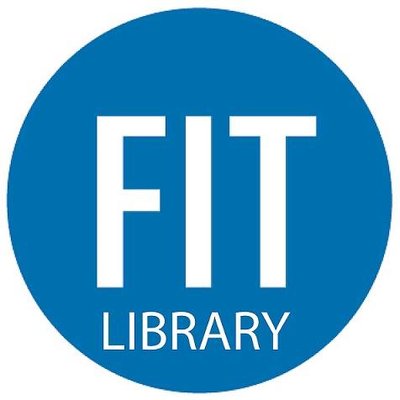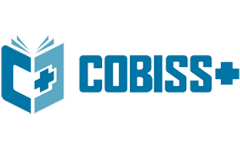The River Conservation for Environmental Preservation in Juristical Perspective
DOI:
https://doi.org/10.61841/3rxdmz41Keywords:
River’s Conservation, Environment Quality, PovertyAbstract
The river conservation has become a challenge to human life nowadays. A river is a place where water has the right to flow; therefore, the environmental conditions must be maintained. In a certain context, the Indonesian public’s perception makes the river an inevitable target in economy-social needs fulfilment. This study uses a normative juridical approach based on the legal norms of government regulation number 35 of 1991 applied to rivers and regulation number 32 of 2009 concerning the environment’s protection and management, by researching the relation between positive law and reality in the community. The damaged quality of the river environment condition has an impact on all components of life structure in the river area; it must be avoided, considered the alternative use of legal instruments to build discipline. The environment issue in developing countries such as Indonesia is caused by efforts to maximize natural resources to fulfil community economic needs. Poverty becomes one factor causing the degradation of the quality of a river's environment; this reflects economic penetration, which takes effect so much into the law dimension. The efforts used to maintain the quality of river conditions through law enforcement processes and also to coordinate the institutional function through supervision so that the preservation of the river’s environment is maintained.
Downloads
References
[1] Dayanto. (2013). Rekonstruksi Paradigma Pembangunan Negara Hukum Indonesia Berbasis Pancasila.
Jurnal Dinamika Hukum.
[2] Dinas Lingkungan Hidup Kabupaten Majalengka, Laporan Pengujian Kualitas Air Permukaan Tahun 2017,
hlm.4-2.
[3] Hasil Wawancaradengan Kepala Dinas Perumahan Pemukiman dan Sumber Daya Air Kabupaten
Majalengka, tanggal 09 april 2019.
[4] Hasil Wawancaradengan Kasi Dinas Lingkungan Hidup Kabupaten Majalengka Data Sungai Kritis tanggal.
09 April 2019.
[5] M.A. Palmer, Standards for Ecologically Successful River Restoration, (USA: University of Maryland, Journal of Applied Ecology, 2005), hlm. 211
[6] Marlang, A., & Rina, M. 2015, Hukum Konservasi Sumber Daya Alam Hayati dan Ekosistemnya, Mitra Wacana Media, Jakarta.
[7] Rahardjo, Satjipto. (1991). Ilmu hukum. Citra Aditya Bakti. Bandung.
[8] Schemel, H.-J. (2004). Emotionaler Naturschutz - zur Bedeutung von Gefühlen in naturschutzrelevanten Entscheidungsprozessen. Natur und Landschaft.
[9] Sutrisno. E. (2013). Rekonstruksi Budaya Hukum Masyarakat Nelayan Untuk Membangun Kesejahteraan Nelayan: Studi Kritis Terhadap Pemaknaan Hukum Genta Press. Yogyakarta.
[10] Sutrisno, E. (2014). Implementasi Pengelolaan Sumber Daya Pesisir Berbasis Pengelolaan Wilayah Pesisir Secara Terpadu Untuk Kesejahteraan Nelayan (Studi di Perdesaan Nelayan Cangkol Kelurahan Lemahwungkuk Kecamatan Lemahwungkuk Kota Cirebon). Jurnal Dinamika Hukum.
[11] Sutrisno, E. (2015). Bunga Rampai Hukum&Globalisasi, In Media. Bogor.
[12] Sutrisno, E. (2015). The Local Government Dilemma in Accommodating the National Regulation Saarbrücken, Deutschland, Germany: Lambert Academic Publishing.
[13] Sutrisno, E. (2015). Tracing the Performance of Law in Indonesia (A Perspective of Thomas Kuhn’s Normal Science). Journal of Law, Policy, and Globalization, 37, 126.
[14] Sutrisno, E. (2017). THE STUDY OF RIVER POLLUTION RELATED TO DOMESTIC WASTE IN THE PERSPECTIVE OF COMMUNITY LEGAL CULTURE. South East Asia: Journal of Contemporary Business, Economics and Law, 12(2), 158-162.
[15] Sutrisno, E. (2019). Relations between legal culture and economic empowerment among marginalized groups of farmers. Journal of legal, ethical and regulatory issues.
[16] Sutrisno, E., & Jazilah, I. (2019). The licensing policy for groundwater extraction and management for the hospitality industry in cities in developing countries. Water policy.
Downloads
Published
Issue
Section
License
Copyright (c) 2020 AUTHOR

This work is licensed under a Creative Commons Attribution 4.0 International License.
You are free to:
- Share — copy and redistribute the material in any medium or format for any purpose, even commercially.
- Adapt — remix, transform, and build upon the material for any purpose, even commercially.
- The licensor cannot revoke these freedoms as long as you follow the license terms.
Under the following terms:
- Attribution — You must give appropriate credit , provide a link to the license, and indicate if changes were made . You may do so in any reasonable manner, but not in any way that suggests the licensor endorses you or your use.
- No additional restrictions — You may not apply legal terms or technological measures that legally restrict others from doing anything the license permits.
Notices:
You do not have to comply with the license for elements of the material in the public domain or where your use is permitted by an applicable exception or limitation .
No warranties are given. The license may not give you all of the permissions necessary for your intended use. For example, other rights such as publicity, privacy, or moral rights may limit how you use the material.
















